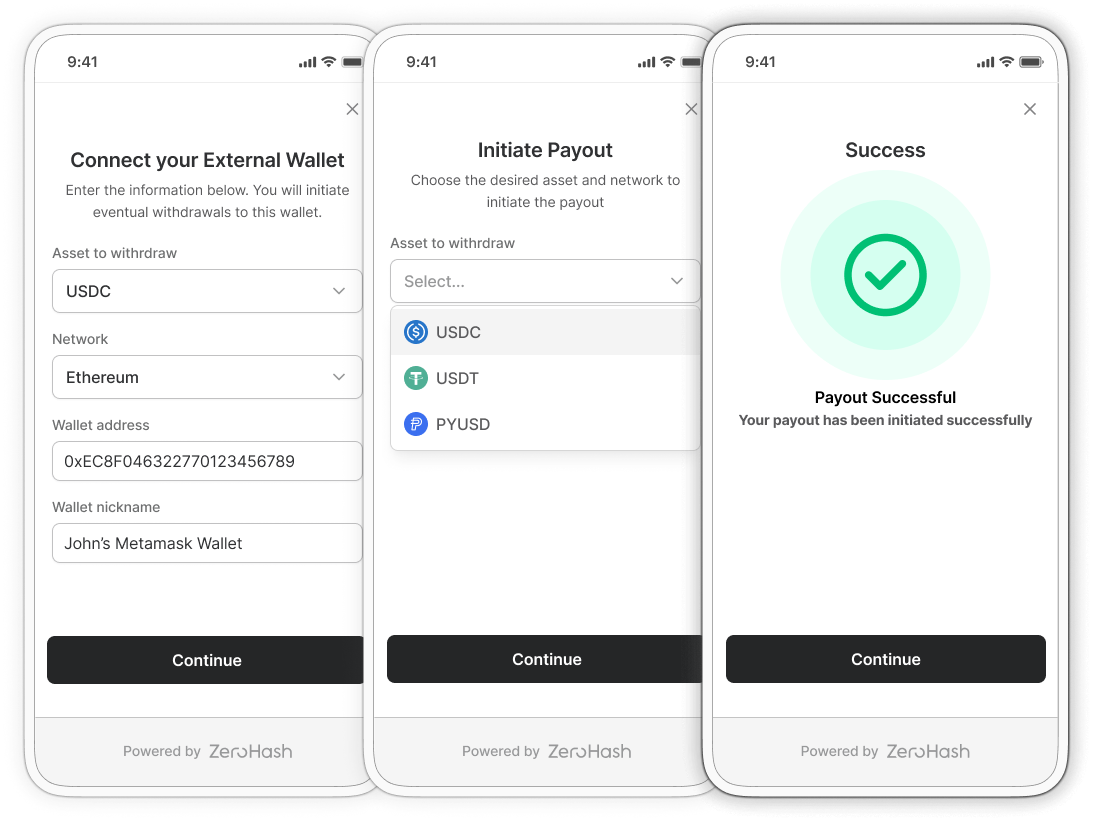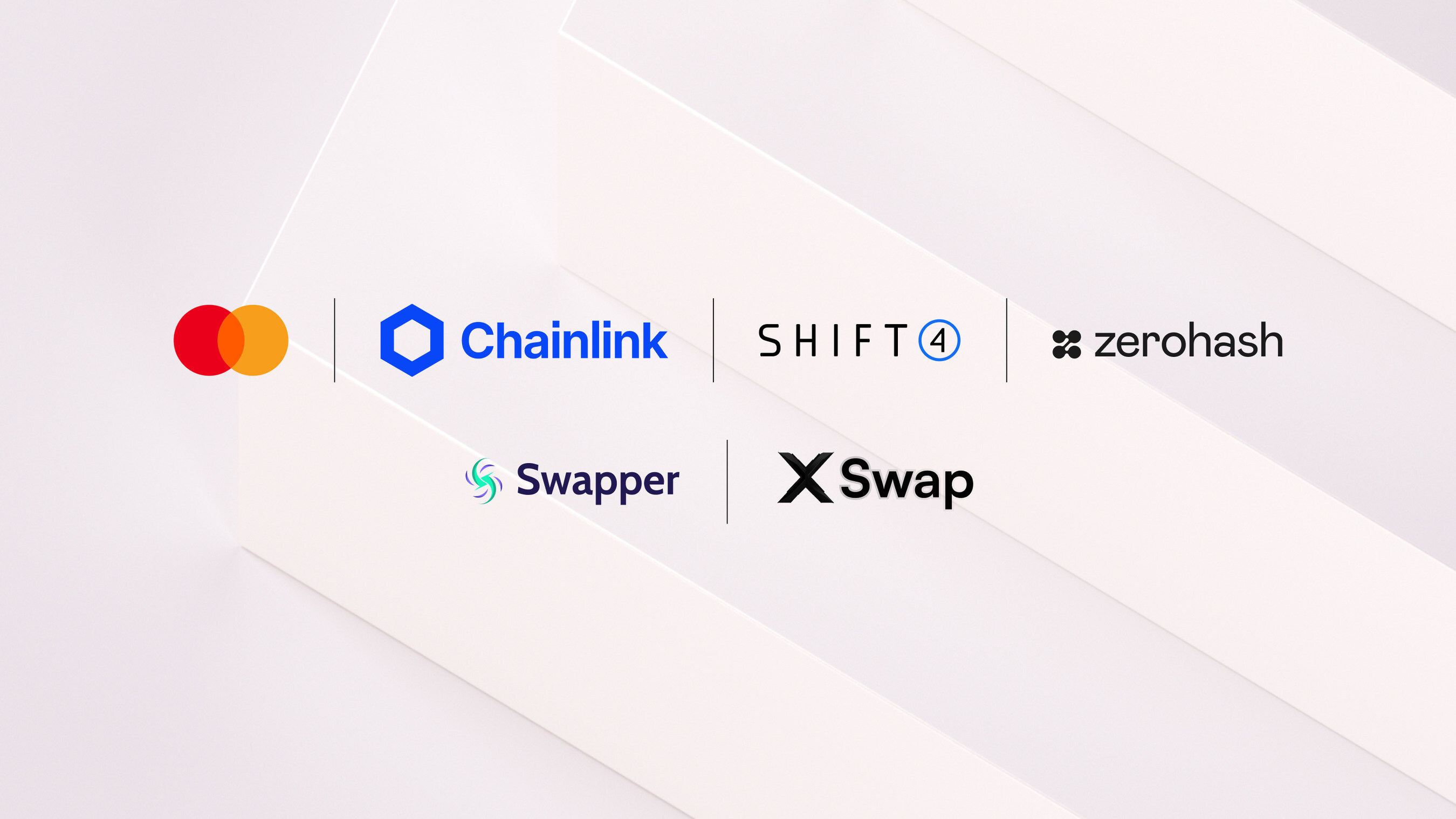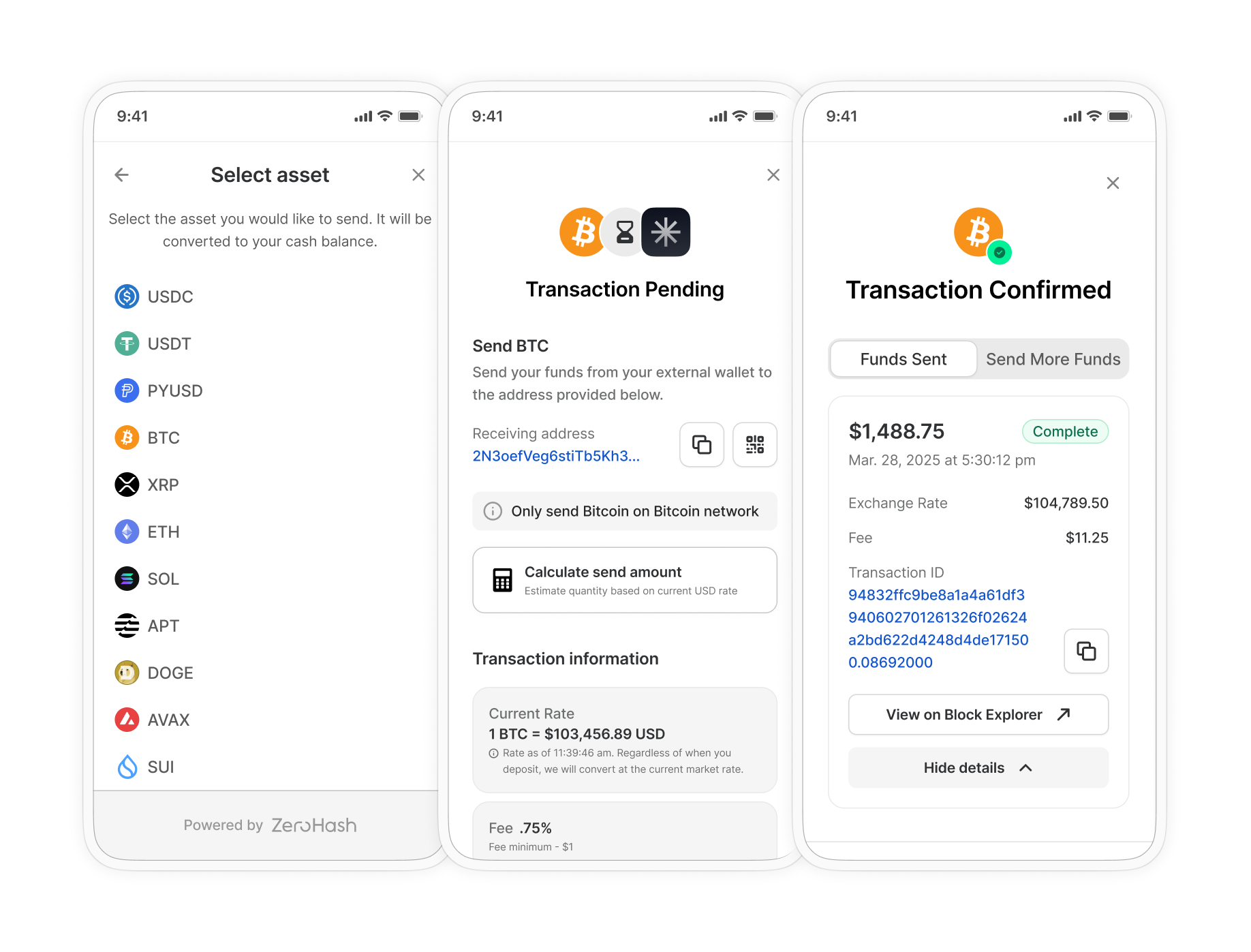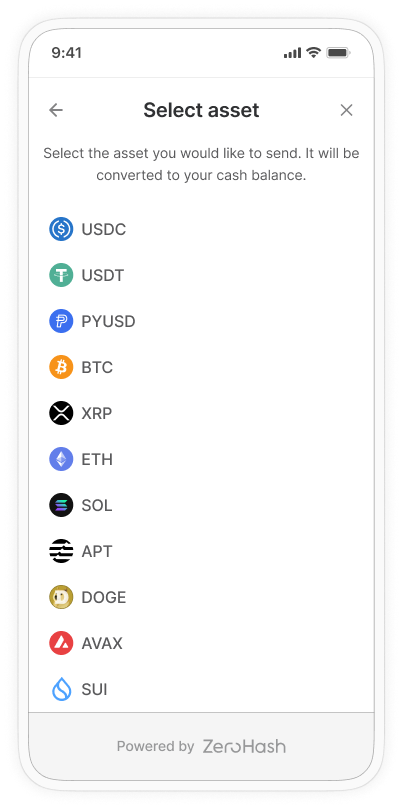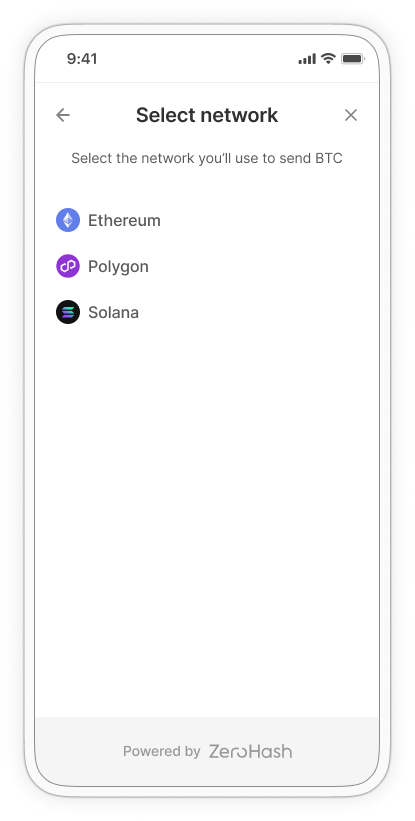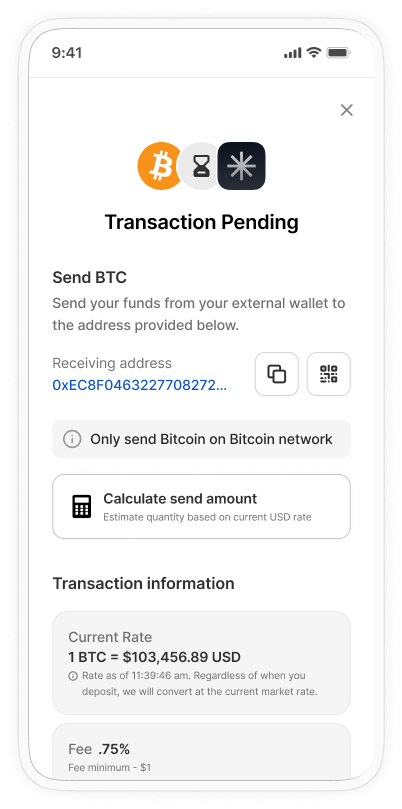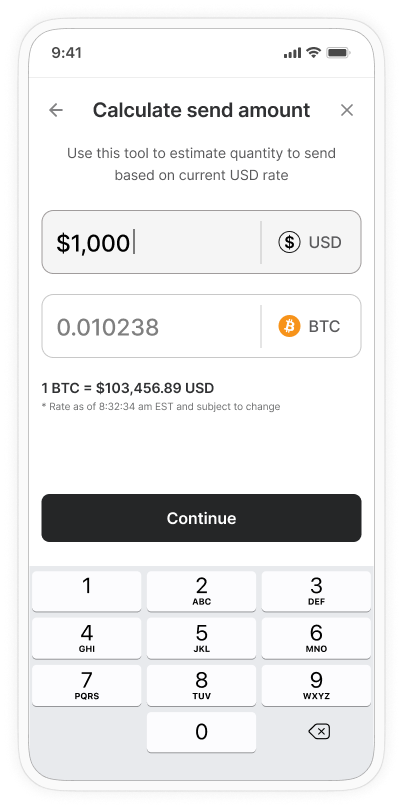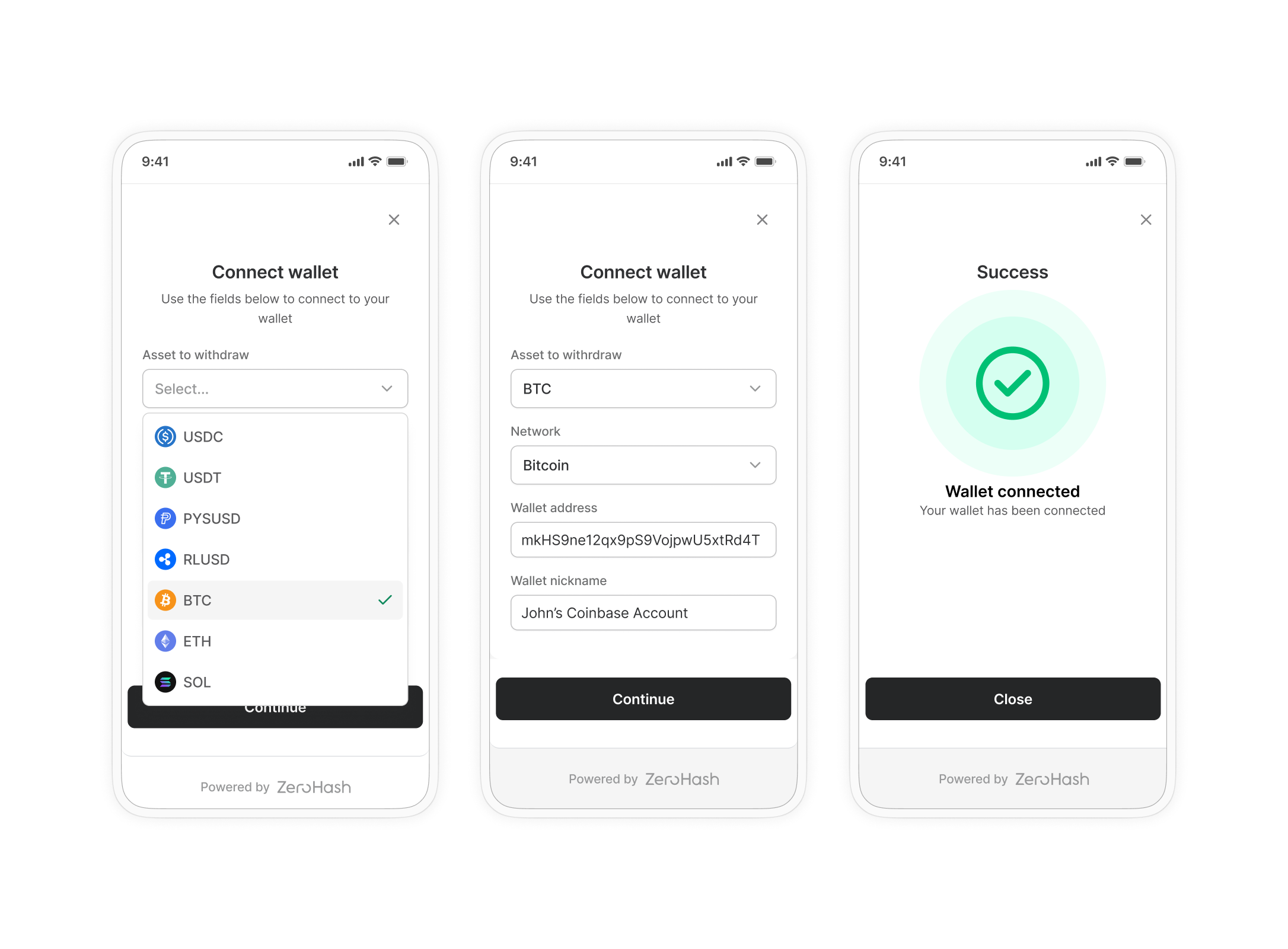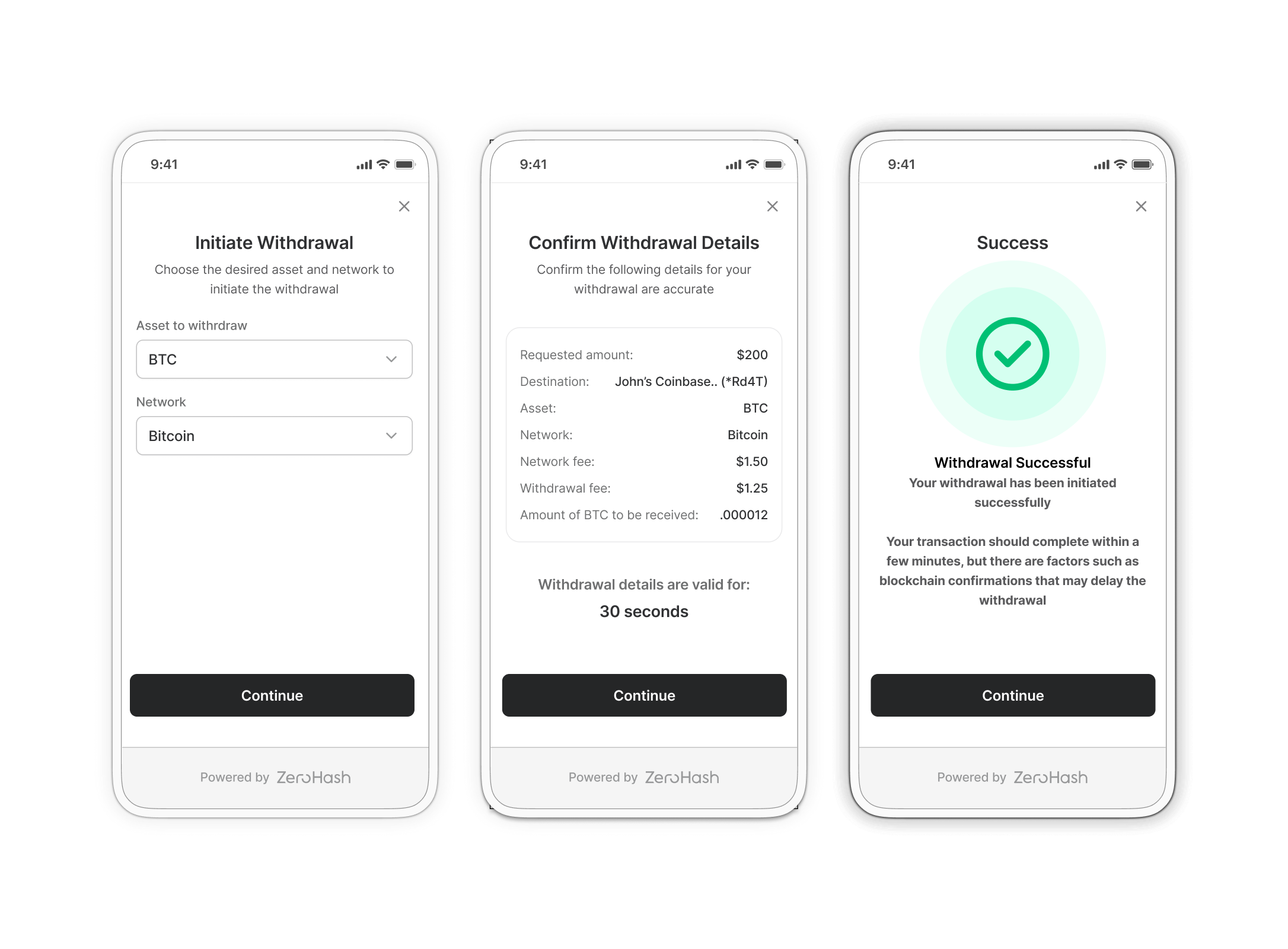Jun 3, 2025
Release type
Informational – Optional action from platforms.
Summary
There is a new endpoint under the Participant information sharing endpoints that allows the platform to access the information of Control Persons or Ultimate Business Owners of an entity with a participant code in Zero Hash.
GET /participant/{participant_code}/full_info/cp_boGET /participant/{participant_code}/sanction_screening_info/cp_boGET /participant/{participant_code}/basic_info/cp_bo
This endpoint will provide the Control Person / Ultimate Business Owner information according to the PII access level the platform is certified for.
For more information on this, refer to the following documentation:
https://docs.zerohash.com/changelog/participant-information-sharing-with-platform#summary
Action required
No action needed from platforms. The endpoint will be available upon release.
Platforms who want to access the Full Information endpoint need to contact client support to have this endpoint enabled.
Endpoints impacted
GET /participant/{participant_code}/full_info/cp_boGET /participant/{participant_code}/sanction_screening_info/cp_boGET /participant/{participant_code}/basic_info/cp_bo

